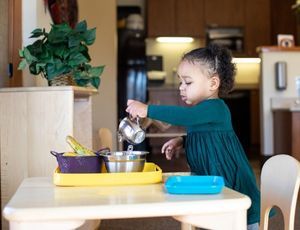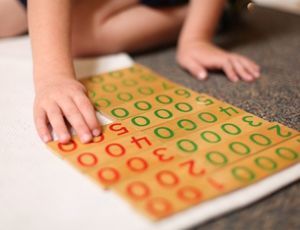Helping with Back to School Transitions
By Marcia Kidd
Another school year has begun at MSL!
With it comes the excitement of new friends and learning experiences, and sometimes a few butterflies. During the first few weeks of school, students at all levels are transitioning to new schedules, new teachers, new classmates, and new expectations. Older students may feel anxious or excited and may not sleep well the first few nights of the school year. Sometimes, even teachers feel back-to-school anxiety!
For our younger students, separation anxiety and tears are to be expected, as children and parents alike are asked to hand over a bit of their trust to the teachers they will be working with throughout the school year. It is challenging to see your young child upset as you leave at morning drop-off, but it also reflects positively that your child has developed a healthy attachment to you. As his primary caregiver, you are that safe base from which your child feels confident to explore his world. Though difficult for children and parents alike, separation anxiety is normal and in most cases subsides with time.
MSL staff continue each day to support your child’s transition into that happy and predictable routine that encourages trust and independence at school. Students begin the school year with transition days – a shortened schedule and smaller class size so that teachers can nurture and provide extra support to the new children in the classroom. From the beginning, teachers implement consistency and a routine, which is comforting to small children. Teachers give individual lessons, which allows them to closely observe your child’s skills, interests and needs. During the first six weeks of school, classrooms are protected from outside visitors and interruptions, allowing children to settle without additional changes to their environment.
Teachers communicate with you frequently through Bloomz messages, photographs, and emails and are available by phone and email to respond to your questions and concerns.
There are many things you can do to support your child’s transition to school:
- Ensure your child has adequate rest. Transitioning to a new school can be very tiring for your child; avoid over scheduling his day with extra activities. Children who have not napped for months sometimes resume napping during this adjustment period.
- Continue to work on separation anxiety by arranging for your child to stay for short periods with a sitter.
- When leaving your child, keep transitions short. Long goodbyes or returning to check on your child can increase anxiety if your child interprets your hesitation to mean that you will not be leaving him. Instead, request that teachers send you a quick phone or email update once your child has had time to settle.
- Establish the pattern of regular school attendance to allow your child to adjust more quickly.
- Prepare ahead of time for the day (making lunches, laying out clothing, etc.), so that you and your child
do not feel rushed in your morning routine. - Speak positively about the school experience. Creating a social story that describes the routine of the school day can help to reduce fears by communicating with words and pictures what to expect each day. Describe time in ways your child is able to understand, e.g., “I will pick you up right after your nap and before we pick up your sister,” or on the weekend, “You will see your school friends and Larry the tortoise after one more sleep.”
- Be punctual at pick-up time, as children’s fears often increase when parents are late for pickup.
- Spark conversation and interest in school by sharing with your child school photos posted by teachers.
- Consider whether mornings might be less stressful if one parent or the other drops off your child.
- Communicate with teachers if your child is experiencing what appears to be extreme separation anxiety. Discuss extending your child’s transition period, if needed. Stay connected by reading classroom Bloomz posts and school emails and reaching out to teachers.
Remember that separation anxiety is a normal result of the healthy, secure attachment that your child has developed with you. As you support and reassure your child about the safety of the school environment, separation anxiety will eventually give way to trust.
For additional reading on back-to-school transitions, please visit these articles:






